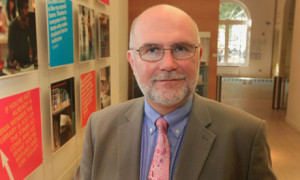Britain’s leading medical union has warned the Government that plans to extend the charging system for migrants and short term visitors attempting to access healthcare in the UK could damage health services.
The British Medical Association (BMA) said the proposals to change the financial contribution system for migrants and overseas visitors would involve a costly increase in bureaucracy and negatively impact the workload on already struggling GPs.
Plans to charge foreigners who come to the UK hundreds of pounds a year to access NHS treatment were revealed in July. The fee, which is likely to be around £200-a-year, will affect foreign workers and students staying in Britain longer than six months. Health Secretary Jeremy Hunt said at the time the changes were vital to the future sustainability of the NHS.
The consultation process is due to end on Thursday (August 29), after which the Home Office and the Department of Health will assess the proposals’ viability and potentially set out in detail how the scheme would work. One option under discussion is the introduction of a levy payable before any visa over six months is issued.
The Government also proposes the end of free access to primary care to all visitors and tourists and at the same time to improve the system by which the NHS can claim reimbursement from the home countries of patients who are visiting from within European Economic Area.
The BMA said it agreed with the Government that care should not be denied to patients who require immediate treatment, but added that the proposals raised ethical concerns.
Mark Porter, chair of BMA Council, said: “The BMA believes that anyone accessing NHS services should be eligible to do so, but the Government’s plans for extending charging to migrants and short term visitors are impractical, uneconomic and inefficient.
“The NHS does not have the infrastructure or resources to administrate a charging system that is not likely to produce enough revenue to cover the cost of setting up its own bureaucracy. The NHS does not need more administrators; it should be spending its money on caring for patients.
“More worryingly, the proposals could have an impact on the care all patients receive. If non-EEA doctors are forced to make contributions to their healthcare, this could discourage them from coming to practice in the UK and working in key services, such as emergency departments, which are experiencing doctor shortages. This could exacerbate the current workload pressures already facing the NHS.
“The Government needs to rethink it is entire approach to this issue as in their current form these proposals are unworkable and potentially damaging to the NHS.”
Dr Chaand Nagpaul, chair of the BMA’s GP committee, said: “GPs, like many other NHS staff, do not have the capacity to administer a complicated bureaucratic system that is of questionable benefit to taxpayers and patients.
“Asking patients to produce documentation to prove their residency faces a number of problems. It would mean all patients would have to have their eligibility checked each time they register with their GP. This would be a huge inconvenience to all members of the public and would take up valuable time that practices could be using to treat patients.”
A Department of Health spokeswoman said: “No one expects health workers to become immigration guards and we want to work alongside doctors to bring about improvements, but we are clear we must all work together to protect the NHS from costly abuse.
“We want a system that is fair for the British taxpayer by ensuring that foreign nationals pay for their NHS treatment. By looking at the scale of the problem and at where and how improvements can be made we will help ensure the NHS remains sustainable for many years to come.”











